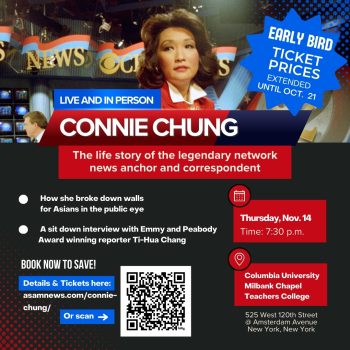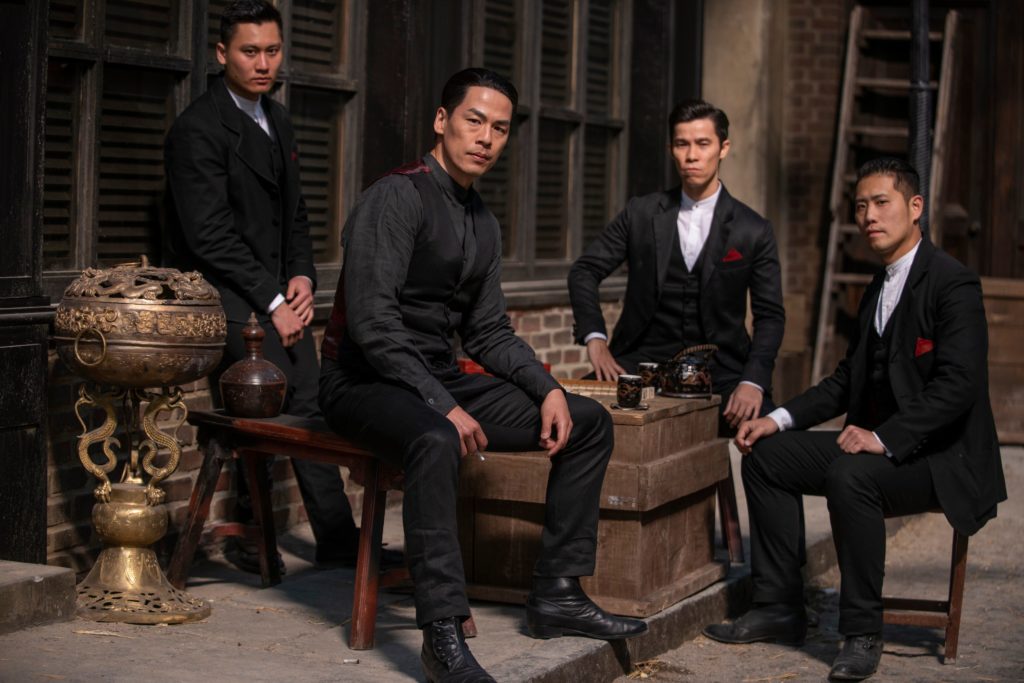
By Erin Chew
A story started by the legend whose legacy has been imprinted in the minds of Asians everywhere over many decades, has now been bought to life.
Bruce Lee wrote an eight page treatment for a story called Warrior which is a fictional action – drama, about a martial artist coming from China to San Francisco’s Chinatown during the mid-1800s, working as a body guard during the Chinese tong ( gang) wars of the time. The mid -1800s Chinatown, was a time of deep unrest for the Chinese under the racially motivated legislation known as the Chinese Exclusion Act. This was a story, which Lee wanted to tell, but never got to complete outside an eight page treatment. Interviewing and talking with his daughter Shannon Lee on the eve of the release of this Cinemax Series (April 5), I definitely sensed the passion from her to not only continue her father’s legacy but to also do justice and complete what her father started to a standard which he would approve.

Moreover, in addition to talking to her about continuing her father’s legacy, I also learned about the process which she and producers Justin Lin and Jonathan Tropper went through to ensure that this series was done right in order to pay homage and respect to the stories Bruce wanted to tell. One of the most intriguing parts about learning of this story treatment was how it demonstrated that Bruce himself had such a magnificent mind and one, which was way ahead of his time. If you think about it, a lot of the conversation, which are being had, now on more Asian representation and visibility in Hollywood is centered on the message of “telling authentic and personal stories”. Bruce did this at a time when this conversation did not even exist, and this makes Cinemax series Warrior even more important to produce and watch.
In this piece, I will not be providing many spoilers, but just mention a few points which strengthened the appreciation I have for this series together with the interview with Shannon. The journey in producing this series started with director/producer Lin contacting her to ask if this story Warrior written by her father actually existed. Once confirmed the discussion on using this treatment to create an actual television series was born. This is how Shannon explained to AsAmNews the process in first being convinced to produce this but also why this was an important story of her fathers’ to tell:
Justin Lin contacted me about this initially, and after I told him that this story did exist but only as a treatment, our discussions from there evolved to how it could be told right. My father wrote an eight-page treatment, which meant that the story was not fully fleshed out as an actual project. One thing which has always been a part of what I wanted to do was to work on a production around the stories my father intended to tell, because it was a way to story tell and reach a wide array of people and keep my fathers’ legacy alive. In order to do this, I always knew that I needed the people whom I work with to support my vision, respect the project and how the collaboration would occur. I really found this in Justin and saw how passionate he was to see this story done right by my fathers’ memory. Justin told me that he wanted us to be partners in this and to produce this project the right way, and if this was not possible, it would be best to not do it at all. Those words are extremely important to me because that is my ultimate goal. I am not saying that I would be overtly precious and assert control over the production but I would be there to provide guidance from an authenticity standpoint in order to do right by my father.
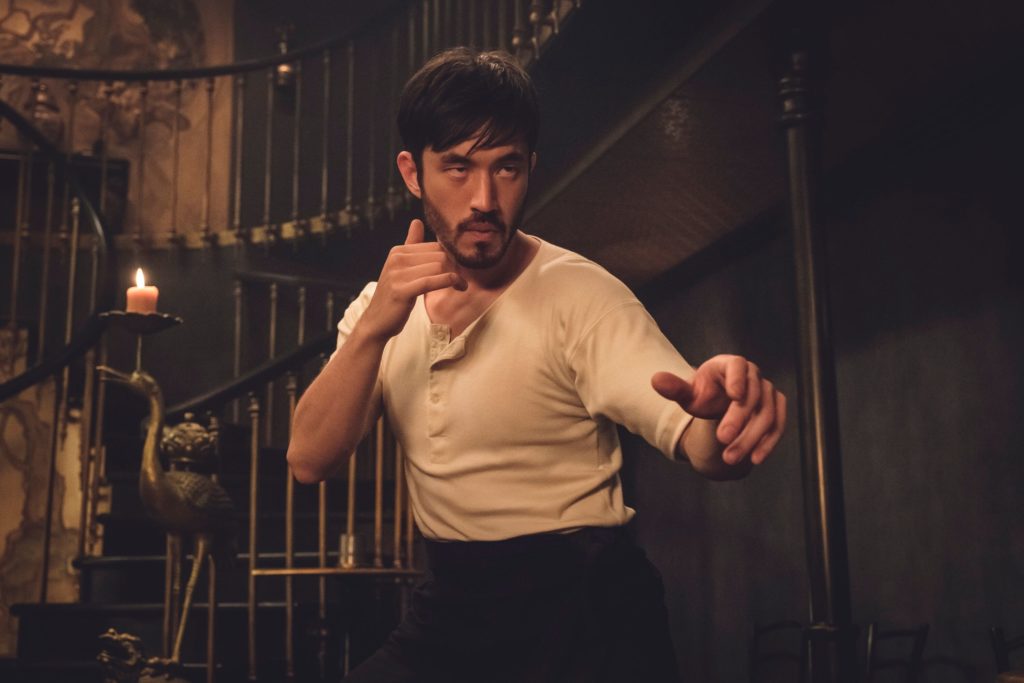
Despite the series being a fictional story, in many ways, it shows the instability and the unrest of the Chinese communities at the time and it demonstrated how the community dealt with the extreme racism and oppression, which were imposed upon them casually as well as legislatively. I asked Shannon to discuss how they managed to keep the integrity of the history of the early Chinese in San Francisco but at the same time maintain that this was a fictional situation, which happened in a real time period in history.
There were certainly challenges in creating this world, especially when it is a cross between real history and a fictional story. This fictional story is about fictional lives which takes place in a historical context. Remember this is not a historical drama but an action series. In saying that there is a responsibility that we deliver action and a dramatic story but at the same time be mindful of the time period and both these aspects were noted in my fathers’ original treatment – that the 1800s was a time of deep unrest for the Chinese. My father really wanted to tell this Chinese story, and introduce the main character as someone that he envisioned he would play (in the series played by British Asian actor Andrew Koji). My father had researched that this was a time of the tong (gang) wars during the enactment of the Chinese Exclusion Act, and he managed to put these components together as a fictional story about Chinese martial artists coming to 1800s San Francisco Chinatown.
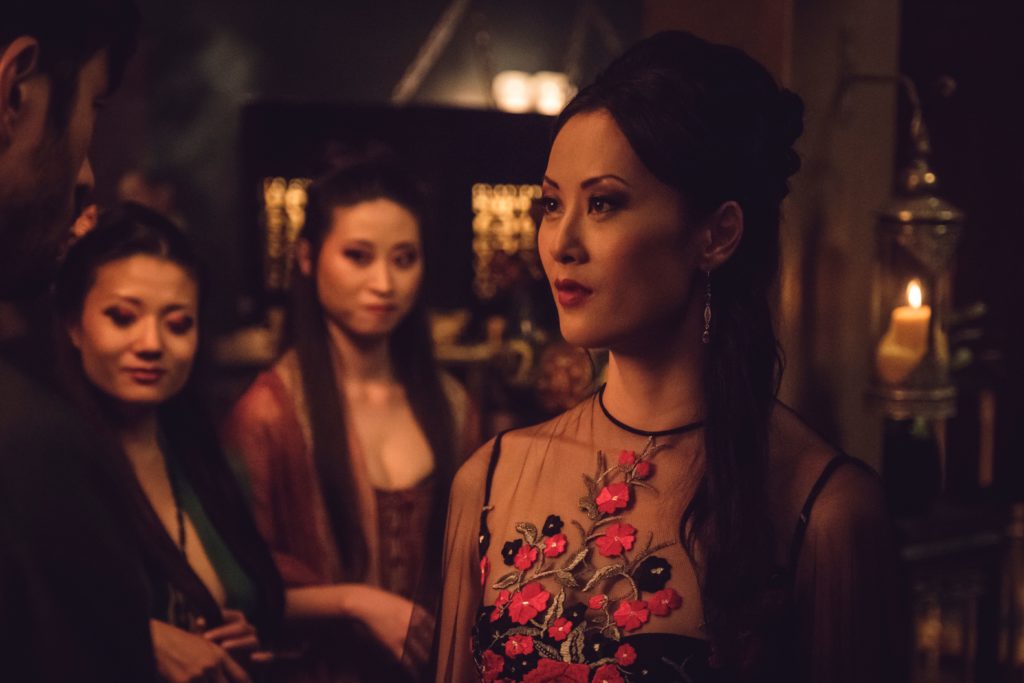
Being a Cinemax produced series (under HBO) all the action and sex scenes were real and extremely raw. This is something hardly witnessed in an American produced series with Asian actors as the leads. Not trying to be crude or crass, but scenes which project everyday life such as sex scenes need to reflect how it is like in everyday reality, and as Shannon Lee, stated during the interview, this was an intention because one needs to remember at that time prostitution was a huge thing which occurred in the Chinatowns around the US.
We wanted the show to have a rawness and realness about it, firstly to dispel any stereotypes that Chinese are sexless or whatever, but also there is an entertainment factor about real and raw sex scenes on television and on film. We need to remember that prostitution at the time was a real thing and we wanted our cast to be and feel sexy and not shy away from that. You can call that scandalous or being sex positive etc. Remember there was nudity in the films my father starred in like Enter the Dragon, and he sure did not shy away from looking sexy and masculine at all. What he showed ( obviously not at the level we are showing now) is that both Asian male and female actors are attractive and do have that sexual energy.
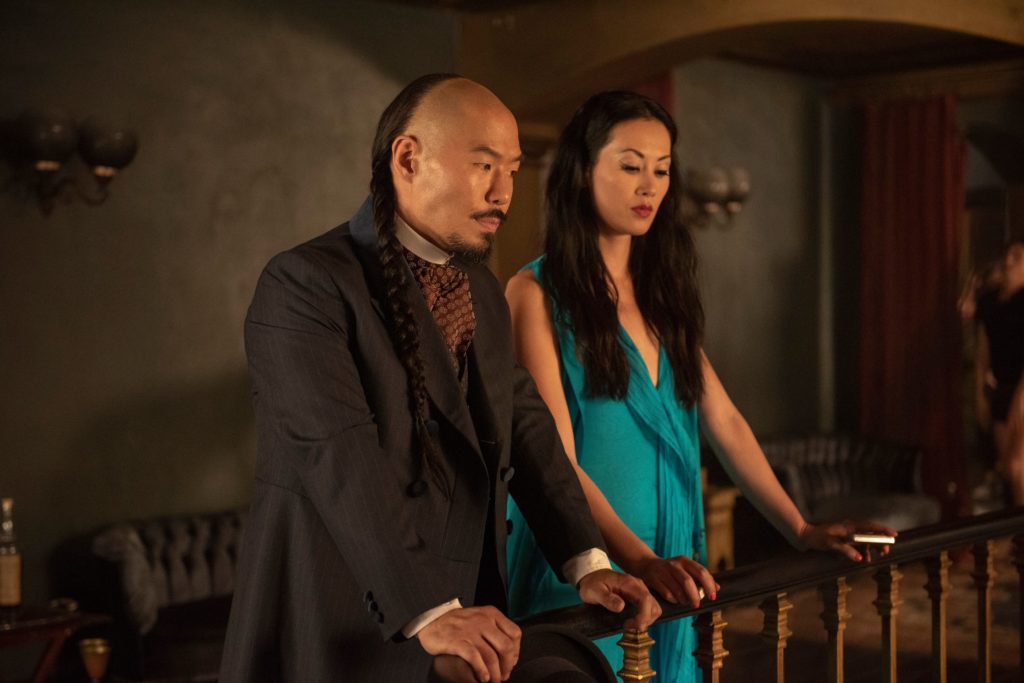
The final aspect I will touch on was about the transition from Cantonese speaking to English speaking, but which still kept the audience knowing that the Chinese characters were speaking Cantonese. This is how Shannon explained this process (probably better than I did);
Well, we talked a lot about language and how we would approach this in the show. We wanted the show to reflect the characters speaking Cantonese and at the same time preserving the idea that this is an American story and that most of our actors do not speak Cantonese. We looked at how we could reference Cantonese and the unique old dialect used among the Chinese communities at the time but also ensure that the actors could do their best performances and not be hindered in having to master this unique Cantonese dialect, at the same time allowing a wide range of audiences to understand it. It was fellow producer Tropper who came up with this transition idea switching languages and he did so saying that he remembered something similar being done in the film For the Hunt of Red October. He wanted to find a way that the Chinese characters in Warrior were speaking to each other in Cantonese with a swish in the transition process. Even with the English you hear used among the Chinese characters, it is a very slangy, stylized way of speaking English. We were extremely mindful of the fact that even though all conversation between characters were in English, we needed to be true to the nuances in the Cantonese language.
Warrior is definitely a series everyone needs to watch to support in keeping the story inspired by the legend Bruce completed and remembered. From an eight page treatment, which was essentially a dream story, it has taken till now to become a reality and one which stays true to the memory of Bruce Lee’s legacy. Asides from the aspects already mention, the action and martial arts scenes were well choreographed and the costumes and location sets really allowed the audience to travel back in time to 1800s San Francisco Chinatown.
The first episode will air on Cinemax on April 5th, so don’t forget to check it out!
AsAmNews has Asian America in its heart. We’re an all-volunteer effort of dedicated staff and interns. Check out our Twitter feed and Facebook page for more content. Please consider interning, joining our staff or submitting a story


